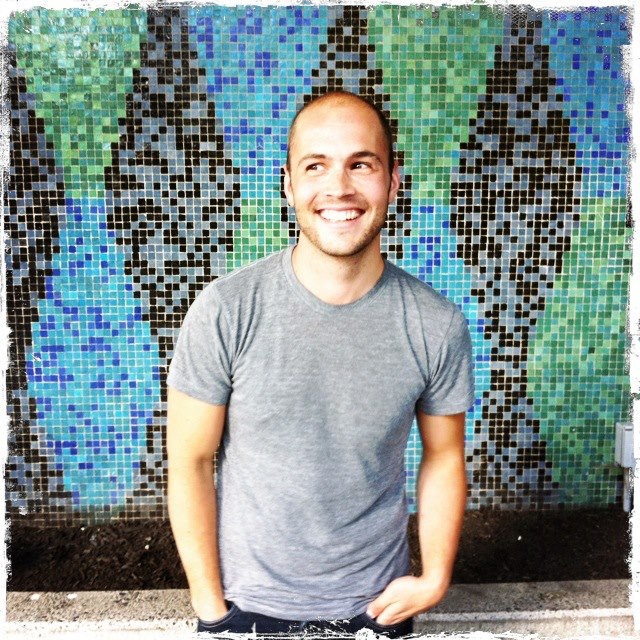Much of the writing on HIV prevention is loaded with punitive clichés about gay men that highlight psychological deficits, lack of self control, and prevention fatigue. Perhaps the most repeated one since the onset of the epidemic suggests that the majority of gay men are into drugs and couldn’t care less about becoming infected while enjoying their substances.
While these clichés have persisted throughout the epidemic, a closer look at statistics shows a more nuanced portrait of gay men. The Sex Now survey (Canada’s largest survey of gay and bisexual men) showed that the vast majority of gay men report no risk for HIV in the previous year (70 percent) nor did most report any use of party drugs over the same time period (85 percent), not even once.
One issue of concern emerging from the Sex Now survey, however, is that gay men who do use drugs are nearly twice as likely to report HIV risk. Other researchers have also demonstrated this relationship. But concluding that “drugs = uncontrolled gay men = risky sex ”, and that health professionals should focus their efforts on eradicating drug use among gay men to prevent HIV, ignores the complexity of gay men’s lives and the reasons they engage in both risky sex and substance use. For example, a recent UK study looking into the narratives of gay men who use drugs suggests that only a small minority were unable to control their behaviour when doing drugs. For others, risky sex was a decision made independently of drug use, while others enjoyed their sex lives and substances without any HIV risk.
Moreover, the explanation for higher sexual risk among drug using gay men may not actually reside in drug use itself. In Sex Now, gay men who reported drug use were also likely to report an array of other psychosocial difficulties such as depression, anxiety, suicidality, experiences of violence and homophobia and episodes of binge drinking. All these factors are known in the HIV literature to increase one’s vulnerability to HIV.
Finally, it is important to consider how public health and community agencies have generally responded to the prevention needs of drug using gay men. A recent review of prevention activities in BC demonstrated that the gay drug-using population is largely ignored by prevention. Initiatives that have been implemented have tended to focus on warning gay men against the danger of mixing drugs and sex, while doing very little to empower more informed decisions. Again, this strategy does not attend to gay men’s needs – most men are familiar with the danger of drugs with sex. Fear-based campaigns ignore the co-occurring factors and health problems gay men may be experiencing in conjunction with drug use. A strategy that focuses on educating solely on the risks of drugs reinforces the cliché that gay men cannot make rational decisions.
Rather than blaming gay men, we need a more positive approach to sex and drug research that examines gay men’s experiences with substances beyond a statistical correlation with risky sex. This research needs to take into account the burden of other health issues in this sub-population. We should demand targeted health promotion initiatives that reflect gay men’s real needs and work to reduce the bias of the public health field which appears to have issues with both gay sex and substance use.
Author: Olivier Ferlatte, Research Education Director at the Community-Based Research Centre for Gay Men’s Health, Vancouver.
**Please note that the material presented here does not necessarily imply endorsement or agreement by individuals at the Centre for Addictions Research of BC


Gay men need to stop doing drugs and having uninhibited sex. This will decrease transmission of HIV and allow them to live healthier lives. They also need to grow up and cross their legs. We are more than the sum total of our sexual impulses!
Public health doesn’t have an issue with gay men or gay men’s health. There are many public health initiatives that focus on MSM health but the uptake of these tends to be very low when you are strung out on G, T, E, or M.
You are not doing a service to anyone by burying some basic facts among all this nonsense.
I strongly believe that a focus on empowerment: self-esteem, positive body image, and spiritual connection (in any form) will make the greatest difference in the lives of those who are presently making risky choices.
HIV research has shown the self-esteem and body image issues are significant precursors to seroconversion. And we know them to be linked to drug use, as well – some more than others.
After decades of fighting the “outside” for our rights and freedoms, for respect and acceptance, from the political front to our own families and social circles – I believe we have all but ignored the home front, and our internal/mental well-being. How do we develop supportive community, as an alternate to the pervasive bitchiness most experience? How do we feel connected to a higher sense of purpose?
To me – efforts in this area will far outweigh campaigns that take a punitive – or even positive – approach to sex and drugs. As they say in NLP, create the pictures in people’s heads of what you DO want them to do. That’s the ticket.
Drew